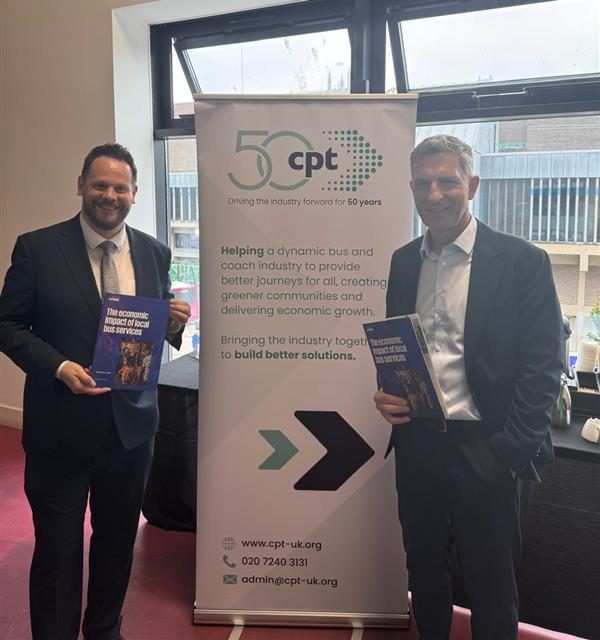
Increased devolution of funding to local authorities for bus services should be accompanied by measurable targets, the Chief Executive of the Confederation of Passenger Transport (CPT) has stressed.
Speaking at the launch on 5 September of CPT’s report The Economic Impact of Local Bus Services, Graham Vidler addressed the growing talk of local government being handed greater funding to go with the increased control of bus services promised by the new government.
Mr Vidler says: “I think what’s really important, however the money is paid out – whether central government pays it out to bus operators, to local authorities or a mix – is there’s real clarity for the tax payer about what they’re getting for that investment.
Devolution is fine and we expect it to happen, but it needs to come with a guarantee of value for money for the tax payer’s investment
“So, if for example, government wants to devolve more funding streams to local authorities, we think that needs to sit hand in hand with some really meaningful targets for local authorities to deliver against – principally in the bus speed space – because, if you’re spending tax payers’ money on bus services in your area, why wouldn’t you want to make the best possible use of that money by getting buses to move a little bit more quickly, enable us to run them a little more efficiently and encouraging more people to use them?
“Devolution is fine and we expect it to happen, but it needs to come with a guarantee of value for money for the tax payer’s investment.”
CPT’s report highlighting the value for money offered by investment in local bus services was timely given recent warnings of a “painful” forthcoming budget on 30 October.
The government’s tight purse means funding for bus is even more valuable, argued Mr Vidler at the launch in Derby, which was also attended by local transport minister Simon Lightwood.
“We’ve all seen lots of coverage of how big the government’s ‘black hole’ is and how tight the next spending review’s going to be,” he says. “And, in that context, it’s really important to focus on bus more than usual because bus is a relatively low-cost, very quick, very flexible way for the government to deliver on its missions.
“If you want to drive economic growth through better connectivity, you can do that really cost-effectively and quickly through investing in bus and that means things like avoiding a wholesale withdrawal from the fare cap (Bus Fare Cap Grand in England), which would provide too much of a shock for passengers. It means maintaining the level of support paid to bus operators and local authorities to maintain networks and, looking to the slightly longer term, local authorities will want confidence that the funding streams the previous government promised them will continue…
“So it’s partly about keeping the fare cap in place, keeping that vital support for existing services in place and helping local authorities to invest in the future.”
The simplification we really want the government to do is over the duration and longevity of funding schemes
A panel discussion at the launch included discussion of simplification of funding streams – amid conjecture this is being considered by the government.
Mr Vidler believes the most important focus of simplification should be long-term certainty.
“Simplification is always a great idea in theory,” he says. “In practice it can bring challenges, if you want to think, for example, about simplifying BSOG (Bus Services Operators Grant) and paying it on a different basis. However you change it, it is going to produce some losers as well as some winners and that’s something we very much want to avoid.
“So simplification isn’t always without problems; the one area where it’s really important the government does simplify things is in the time horizon and helping us and local authority partners not to think in three- or six-month batches because that’s no way to plan bus services for the future but to think in three- or five-year batches.
“So the simplification we really want the government to do is over the duration and longevity of funding schemes, making sure that, where a local authority gets capital funding or where a bus operator gets revenue funding, the size and existence of those streams is certain for the longer term, for a three- or five-year period.”


























